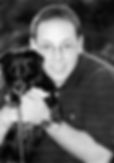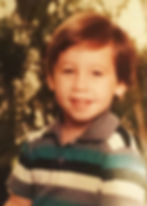



Steven Joel Sotloff
May 11, 1983 - September 2, 2014
Steven Joel Sotloff was born and raised in Miami, Florida, the son of Arthur and Shirley Sotloff, the brother of Lauren Sotloff, and the grandson of Holocaust survivors from Auschwitz.
He graduated from Kimball Union Academy, a private boarding school in Meriden, New Hampshire, and continued on to the University of Central Florida, where he majored in journalism. It was during his sophomore year at UCF that Steven developed a passion for Israel and the Middle East.
Interested in exploring his Jewish roots, he participated in a Taglit-Birthright Israel trip, and eventually decided to make aliyah and relocate to the Middle East, becoming a dual American-Israeli citizen. He graduated Cum Laude with a B.A. in Journalism, Government, Counter-Terrorism and Homeland Security in 2008 from the Reichmann University IDC International School for Counter-Terrorism in Israel.
Steven was a courageous and adventurous freelance journalist, passionate about reporting news through the eyes of people in conflict-torn areas. Inspired by his grandmother's Holocaust experience, and working from some of the most dangerous regions of the world, he wove together stories of average individuals and families simply trying to survive, trying to make an impact on others, and trying to find hope in a world of festering darkness. He became known as "the voice for the voiceless."
While he had worked for ABC News affiliates in Israel and Jordan, Steven’s career really began to take off during the Arab Spring. He worked for Time, The Jerusalem Post, The Christian Science Monitor, The National Interest, The Media Line, World Affairs, and Foreign Policy, and he appeared on CNN and Fox News.
His work took him to Syria, Egypt, Turkey, Libya and Bahrain, and he covered stories about Al-Qaeda, Bashar al-Assad, Benghazi, Ahmad Abu Khattallah, Ansar al-Sharia, the Alawites, Jewish-Arab conflicts, and more.
He often used pseudonyms for his reporting, for his safety as a Jew and a journalist. As a dual citizen of Israel and the United States, Israel had to protect him, as well. During his captivity, Israel swept the internet of a majority of his work, so that it would not be found out that Steven was Jewish or Israeli. It was a desperate attempt to save his life. It is now difficult to find his extraordinarily brave work, although his Benghazi work for CNN and his work for TIME Magazine and a handful of other of his pieces still remain online (See left).
Steven is perhaps best known for breaking the Benghazi story that there was no protest, which CNN described on air as "an excellent piece of journalism." He covered the Benghazi story on ground and was able to do so with his fluency in Hebrew, several dialects of Arabic, and, of course, English. Covering the Arab Spring, and bringing attention to the suffering of the everyday Syrian people which was the world's early glimpse into the coming Syrian Refugee Crisis were considered his courageous works. His coverage of foreign wars from the ground truth, rather than from a seat in New York City, showed his rare courage. He found it to be an important form of journalism. He paid for it with his life.
On August 4, 2013, after crossing the Syrian border from Turkey, Steven was kidnapped, along with several others, near Aleppo by militants from the Islamic State in Iraq and Syria (ISIS). He remained a hostage for over a year, and was tortured.
Steven went to great lengths to hide his Jewish faith and dual US/Israeli citizenships during his captivity, which even during his work brought an extra element of danger. In September 2013, he feigned illness so that he could secretly observe the Jewish fast day of Yom Kippur. His family, friends, the Israeli government and previous employers also went to great lengths to keep his Jewish faith and Israeli citizenship a secret from ISIS, fearing harm would come to him if this information went public.
During his captivity, he managed to smuggle out two letters to his parents, Arthur and Shirley, one of which said in part: “Everyone has two lives: the 2nd one begins when you realize you have only one.”
Despite tireless work by his family and government officials in Washington DC and overseas for over a year to gain his release, Steven was savagely beheaded by a member of ISIS on September 2, 2014. The horrific murder was videotaped and distributed for all the world to see on international news.
After his death, Felice Friedson, Steven’s editor at The Media Line, called him “one of the most courageous, talented and insightful journalists that I have met.”

